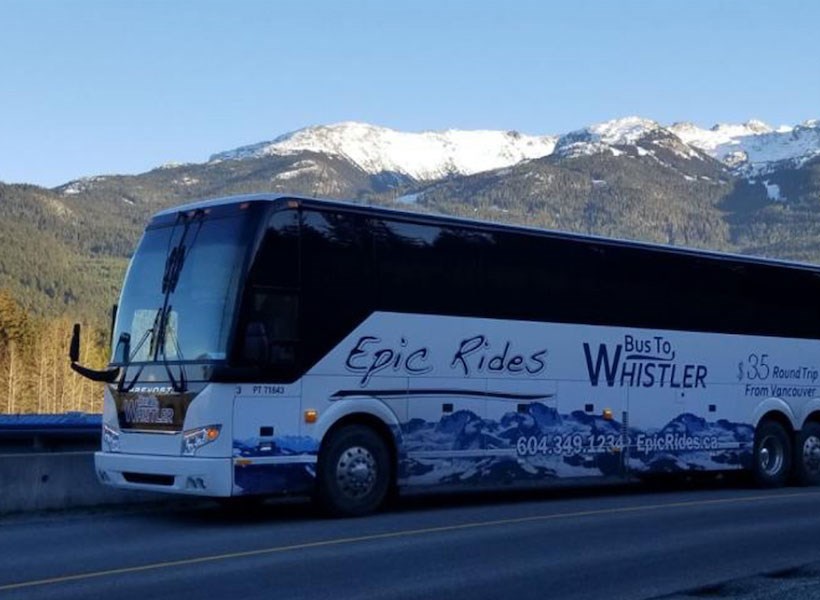The BC Centre for Disease Control has flagged a bus ride to Whistler last month for possible COVID-19 exposure.
The Jan. 29 Epic Rides trip from Â鶹´«Ã½Ó³»to the resort appears as a potential exposure on the . No departure time was listed.
A number of local businesses remain on Â鶹´«Ã½Ó³»Coastal Health's possible : the Amsterdam Cafe and Pub, with possible exposure listed between Jan. 11 and 17, Jan. 19 and 21, as well as from Jan. 23 to the 25; Buffalo Bills, with possible exposure listed from Jan. 4 to 27; Blacks Pub, with possible exposure listed between Jan. 5 to 27; the Dubh Linn Gate Irish Pub, with possible exposure listed from Jan. 1 to 27; the Longhorn Saloon, with possible exposure listed between Jan. 16 and 26; Hy's Steakhouse, with possible exposure listed for Jan. 13, 15 and 16; and El Furniture Warehouse, with possible exposure listed for Jan. 12, and between Jan. 14 and 21. The locations will remain on the list for a month after the last potential exposure date.
Whistler has been the latest hotspot for the virus, with 547 confirmed cases in the resort between Jan. 1 and Feb. 2, eclipsing the community's 2020 caseload of 271.
WorkSafeBC inspectors were in the resort Jan. 30 and 31, and for 35 of the 62 workplaces they visited. Some common infractions included employers not conducting proper health checks, not having proper equipment available or used correctly, and infractions to occupancy limits, particularly in places like lunch rooms or washrooms for employees.
“We were a little surprised out of 62 inspections, a handful didn’t have a COVID safety plan,” said Al Johnson, WorkSafeBC's head of prevention services. “That is basic. After a year of us and everyone else saying, ‘You need a COVID safety plan,’ we were surprised a few didn’t have a plan. That’s not to say they weren’t doing something; they didn’t have a written plan.”

